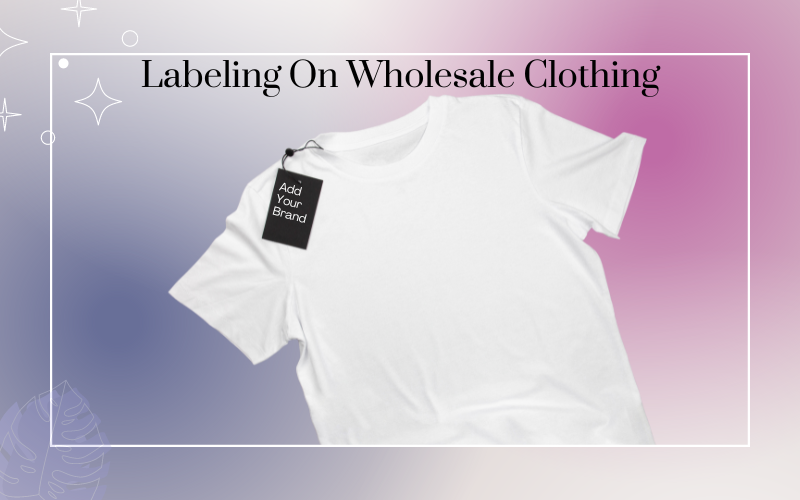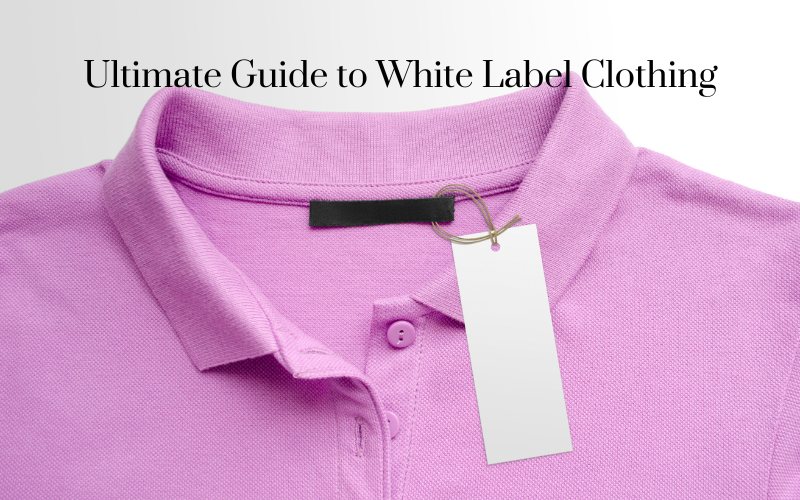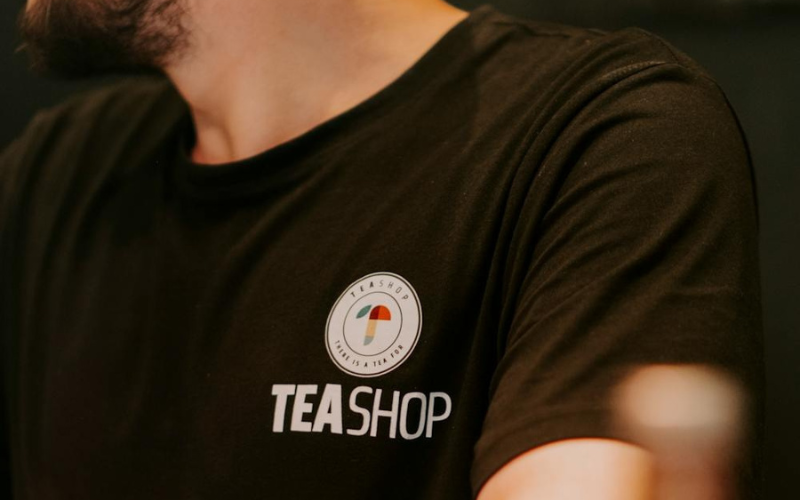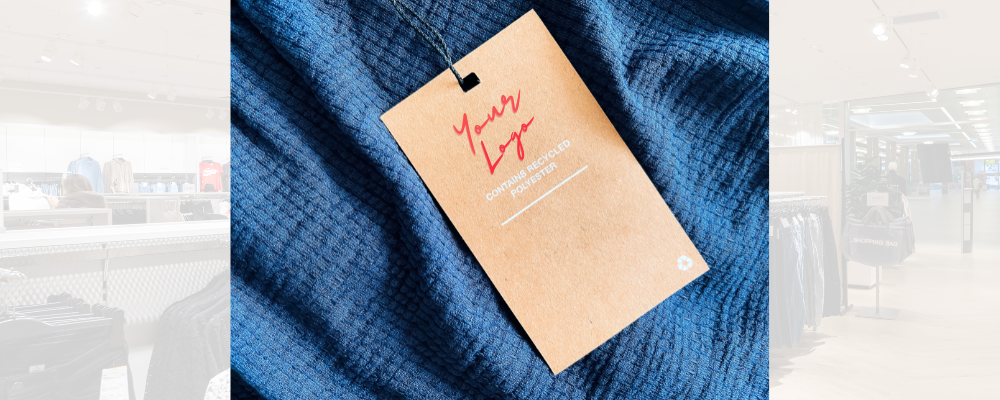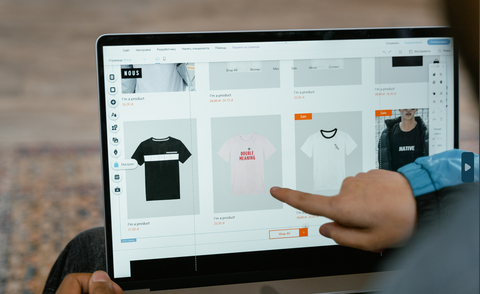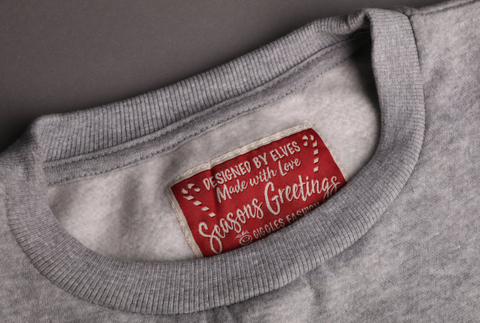Labeling wholesale clothing is a conventional, yet modern approach within the fashion industry. From big to small retailers/businesses, everyone has tried or has been meaning to try this concept. So, if you are wondering if you can put your label on wholesale clothing, then, in short, the answer is “Yes.” However, you must note that there are multiple aspects related to relabeling—legal, creative, and those related to the brand image.
In this article, let’s delve into the factors and the steps necessary for labeling wholesale clothing.
What is Wholesale Clothing?
The concept of wholesale clothing has been trending due to the multiple benefits that wholesale clothing offers to budding fashion designers, boutique owners, online retailers, and individual customers. In this digital landscape, people are always looking for something new. It is quite challenging for designers to design new launches now and then.
Most manufacturers make clothes and then sell them in bulk to customers willing to purchase the lot. This entire process is known as a wholesale clothing channel. Retailers and brands find this process a lot less stressful than having to manufacture from scratch. This even leaves room to customize the clothing range for your brand. However, is the labeling wholesale clothes legal?
Yes, it is legal to label wholesale clothes, provided that you abide by certain parameters. Many wholesale clothing manufacturers in India can help you get a custom tag for this wholesale clothing range.
How is Wholesale Clothing Different from Private Clothing?
In private-label clothing, the designs are original and created based on the theme decided by the designer for that release. However, in wholesale clothing, the apparel is manufactured for the general masses and small brands or business owners.
Moreover, wholesale clothing has room for customization. Once you purchase wholesale apparel, you can make some alterations, add a label of your brand, and sell the apparel to your customers. In fact, many wholesale retailers even produce clothing with labels designed to be torn away easily to make the relabeling process as simple as possible for you.
Why is it done?
Purchasing wholesale clothing has several advantages, such as access to a wide range of products, cost savings, bulk availability, exclusive products, and a continuous flow of the latest products. By adding your label to wholesale clothing that you have purchased, you assert your brand’s identity and offer exclusivity to your customers. While you wouldn’t rebrand a prominent brand, such as Zara or even HnM; however, when it comes to generic wholesale clothing, the fashion industry encourages label changing.
Advantages of Labeling Wholesale Clothing
Adding your label to wholesale clothing can help your business scale and the following points help you understand how:
- Exclusive Brand Identity: Label changing helps brands curate collections that resonate with their target audience. It’s a lot to do with designing a brand experience.
- Flexibility and Personalization: With relabeling, you can customize the clothing according to your client’s preferences and your brand’s aesthetics. This gives you greater flexibility in product offerings and the ability to cater to specific niches.
- Cost Savings: Wholesale clothing from India is cheaper than having to manufacture garments from scratch. By relabeling wholesale items, you can optimize economies of scale, minimize production costs, and assign resources to more important tasks, such as brand development and marketing.
- Better Profit Margins: By relabeling, brands can bypass middlemen which results in better profit margins.
- Preventing Imitation: In this competitive fashion industry, relabeling helps in deterring competitors from trying to replicate your inventory.
Aspects to Consider While Relabeling
There are always legal aspects to consider in any business and while relabeling apparel too, you should be careful while dealing with wholesale products. Following are some of the important legal aspects to consider while relabeling:
- Product Warranty: The product warranty must be mentioned correctly so as to not mislead the customers in any way. Product manufacturers know about the right warranty and limitations of their products; thus, you must get this information from the manufacturers and inform your customers about the warranty accordingly.
- Trademarks: Ensure that the product range is free of any trademarks, as using a different brand’s trademark under your label is illegal.
- Rebranding and Customization: Ensure that your manufacturer is aware and ok with the fact that you will be relabeling and then reselling the products purchased. You may also require a reseller permit before selling any wholesale product to the customers. These nuances must be cleared before proceeding.
- Brand Differentiation: While relabeling allows you to establish your brand identity, it may be challenging to differentiate yourself from competitors using similar wholesale products. Invest in strategic branding, marketing efforts, and unique product offerings to stand out in a crowded marketplace.
Relabeling Wholesale Clothes as a Private Range
Choosing the right wholesale product is another key consideration for relabeling. Following are a few parameters to keep in mind before you begin selling your products:
Purchasing the Right Product
Before purchasing anything, you need to look at aspects such as transportation costs, MoQs, quality, fabric, and so much more. The important thing is to choose good quality wholesale clothing that raises no questions about your credibility or business.
Keep your Audience in Mind
While trying to relabel wholesale clothes, choose clothes that resonate with your brand. It is up to you to decide what works well for your audience as you know them the best.
Customizing it the Right Way
Once you source the clothes and choose the right products, you need to customize them to reflect your brand. You can do the customization yourself or find a manufacturer who can do it for you.
Wrapping Up
Adding your label to wholesale clothing means you are branding that item as your own, and you can further customize it to resonate with your brand.
A platform like Tradyl can assist with the relabeling of wholesale clothing by connecting retailers/businesses with distributors in India who offer customization and relabeling services as part of their manufacturing capabilities. Tradyl allows retailers to find manufacturers that can not only produce clothing but also handle specific requests for relabeling, which includes adding brand labels, custom tags, and packaging to align with the retailer’s brand identity.

